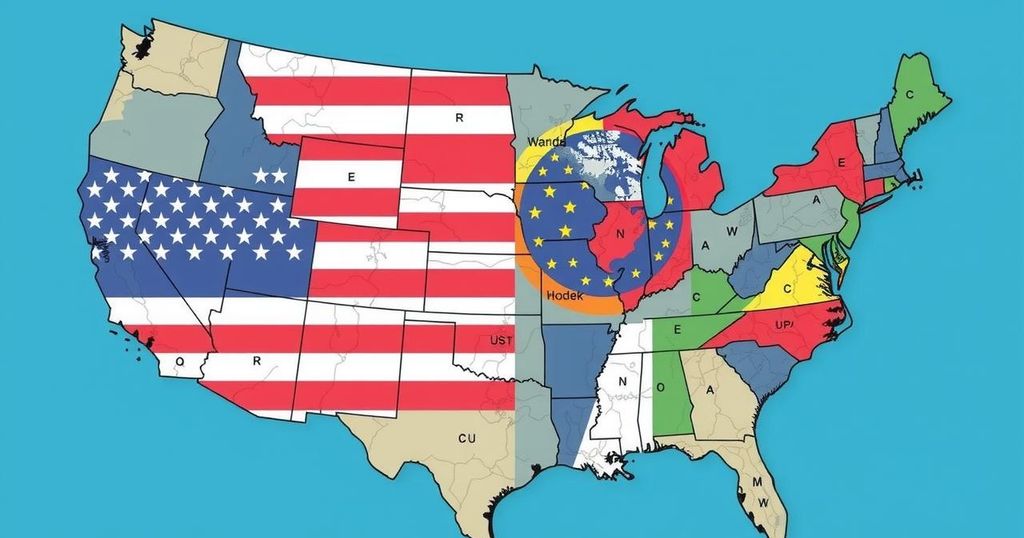Implications of a Potential Second U.S. Withdrawal from the Paris Climate Agreement

Donald Trump has indicated a potential second withdrawal from the Paris Climate Agreement, which could be executed more rapidly than the first. Experts express concerns about loss of trust among global leaders and the possibilities of other nations following suit. Advocates of withdrawal cite economic benefits and demands for U.S. sovereignty, while others emphasize the importance of U.S. involvement in the treaty for its ongoing efficacy.
Former President Donald Trump has indicated his intention to potentially withdraw the United States from the Paris Climate Agreement for a second time. Unlike the initial withdrawal, which faced a lengthy three-year delay due to the treaty’s regulations, the current geopolitical environment could facilitate a swifter exit should he retake the presidency. Following President Joe Biden’s reinstatement of U.S. participation in 2021, Trump has expressed interest in a rapid withdrawal, potentially setting a precedent for other nations contemplating similar actions.
Experts have voiced concerns regarding the implications of a second U.S. withdrawal from the Paris Agreement. David Waskow from the World Resources Institute remarked on the changed timelines governing international responses, while Max Boykoff of CU Boulder highlighted the danger of diminished trust among global leaders. He warned such a withdrawal could incite other countries, such as Argentina, to reconsider their commitments to the agreement, undermining global climate efforts.
Proponents of Trump’s potential second withdrawal argue that exiting the agreement would restore U.S. sovereignty and mitigate undue economic burdens on American workers. H. Sterling Burnett of the Heartland Institute noted that adherence to the Paris Agreement could disadvantage the U.S. economically, particularly compared to nations such as China, which emit significantly more carbon without similar commitments. Additionally, suggestions have emerged regarding a comprehensive withdrawal from other climate frameworks, including the U.N. Framework Convention on Climate Change (UNFCCC).
Furthermore, opinions from various leaders emphasize the necessity of U.S. participation in the Paris Agreement to maintain its efficacy. United Nations Secretary-General António Guterres cautioned that while the agreement could endure without U.S. involvement, it risks becoming weakened and dysfunctional, potentially jeopardizing global climate objectives.
The Paris Climate Agreement, created during the 2015 U.N. Climate Change Conference, is an international treaty involving nearly 195 countries committed to combating climate change. The United States entered into the agreement under former President Barack Obama, but Trump’s administration signaled a desire for withdrawal due to perceived economic disadvantages. The original exit process was prolonged by treaty stipulations, creating an environment ripe for discussion about future withdrawals under a potential third Trump administration, particularly after Biden’s administration rejoined the accord.
In summary, the prospect of a second U.S. withdrawal from the Paris Climate Agreement appears increasingly feasible should Trump return to office. This development could significantly alter international climate negotiations and hinder efforts to combat climate change globally. Stakeholders express a mix of apprehension over diminished trust in U.S. leadership and anticipation for restored sovereignty regarding climate policy. Maintaining U.S. participation in the agreement remains crucial for ensuring its effectiveness in addressing global climate challenges.
Original Source: www.foxnews.com








